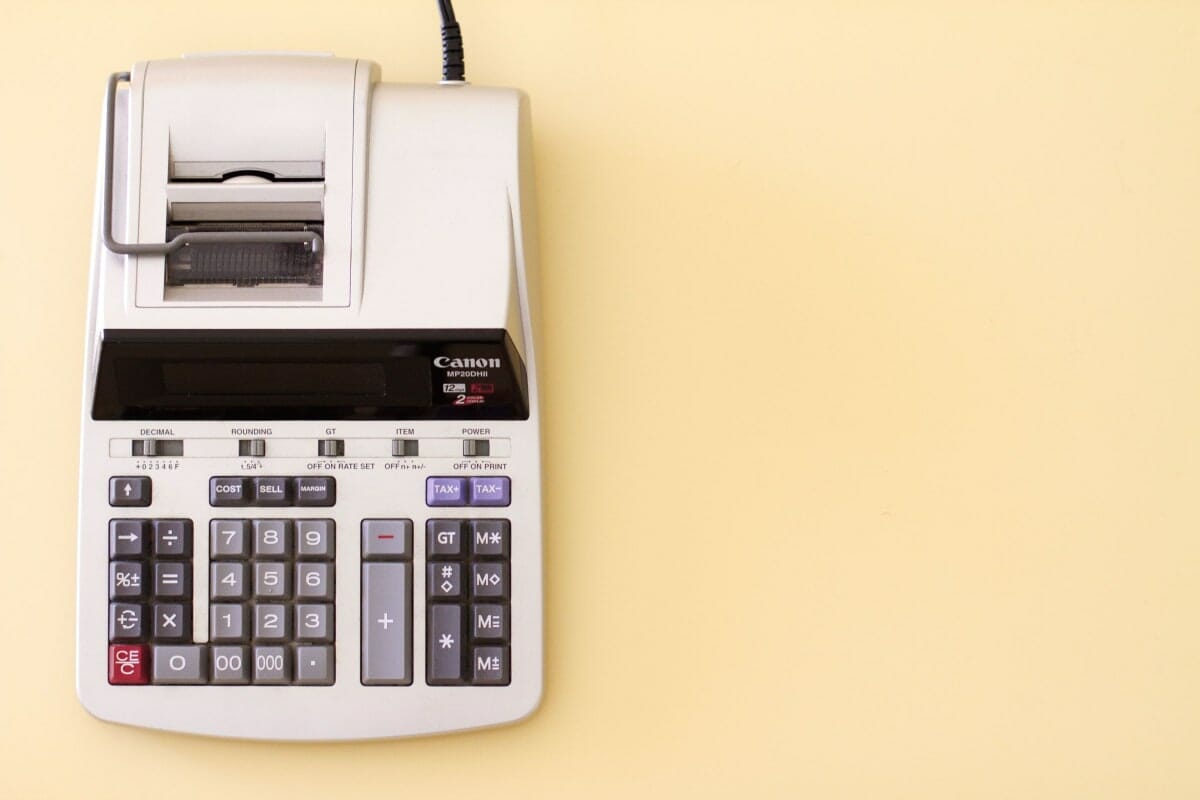Have you just started a new business or want to improve your understanding of both bookkeeping and business finances? Then, it’s a good idea to familiarize yourself with a handful of important bookkeeping and accounting terms.
It’s not just about knowing what they mean, but doing your best to gain a deeper understanding of these important concepts through personal experience and from working with your bookkeeping service provider.
Your mastery of these terms and their associated practices, along with other concepts covered elsewhere, allow you to manage your money better, balance the books, interpret cash flow statements, know your financial assets, keep track of financial transactions, stay organized with your financial reports and financial records, use business credit cards with greater care, and improve your business operations. To help you sharpen your grasp of these concepts, we have prepared this informative post for you. Let’s explore them now.

1. Accounts Payable
One accounting term every business owner should know is accounts payable. It refers to the combined bills that your company owes and needs to pay. However, it does not include payroll expenses. Since these expenses are not paid immediately, they are classified as liabilities.
Some examples include unpaid bills and credit card statements. When you think about buying something new, you need to go through accounts payable to determine whether you can even make a purchase or not. It is a basic business function, and will affect business performance.
2. Accounts Receivable
Another common financial term that you must know as a business owner is accounts receivable. If you are unfamiliar with accounts receivable, it refers to money that your customers owe to your business for the products or services purchased.
Accounts receivables are classified as an asset since it is money that your company will eventually receive from customers. Generally, you will need to keep an eye on your invoices to track accounts receivable. Bookkeeping software will help in this area by keeping data organized and ready for analysis. However, you need to make sure you’re entering the correct information into your system in a timely manner.
Late payments can affect daily operations and create cash-flow issues, especially for smaller companies with less overall cash on-hand from day to day. Their volume of sales will often be less than more established companies are, therefore, affected more dramatically by unpaid bills. Stay on top of accounts receivable.
3. Accruals (accrual basis accounting)
With accruals, income is recorded when it is earned and expenses are recorded the moment they are billed. This means that real-time accounts won’t match the recorded profit. However, accrual accounting is a method that offers a long-term picture of the business’ income and expenses.
4. Balance Sheet
A balance sheet is an important financial statement that offers a quick insight into the financial position of a business. You can rely on it to find out what your company owns and owes. Also, a balance sheet lets you know how much capital you have. You can use it to compare the values and performance of different areas of your company to find out which ones are driving you forward and which are holding you back.
5. Assets
Small business owners and business leaders of all kinds should also know what assets are. In the simplest of terms, assets refer to all the resources a business owns. It is important that you understand that there are tangible and intangible assets. Some examples of assets include cash, real estate, inventory, owned equipment and vehicles, and investments.

6. Liabilities
Liabilities are the opposite of assets. They are financial or legal debts that a business owes, such as accounts payable, taxes, credit card debt, and mortgages. Every small business owner needs to make sure to keep their liabilities in check, as they can put pressure on cash flow and business activities.
7. Burn Rate
Burn rate is a calculation that allows you to find out how long your company will be able to operate with the cash you have without making a profit. You can monitor the burn rate of your business to determine the amount of time it can sustain itself without income.
8. Cash Flow
A notable accounting term that you might have heard of is cash flow. It refers to the amount of cash that comes into your business and the amount of cash that goes out. It includes both losses and gains. Cash flow includes financing activities, investment activities, and operating activities. Of course, it’s generally a good idea to maintain positive cash flow for success.
9. Depreciation
Most assets that your business owns will depreciate. In accounting, depreciation refers to the loss in value of an asset over time. You have to calculate the depreciation of current assets to determine their cost over their life expectancy. Some of the assets that you will need to record depreciation for include buildings, equipment, and machinery.
10. Credit
In accounting, a credit is an entry in which you record a decrease in assets or an increase in liability, along with a decrease in expenses or an increase in revenue (as opposed to a debit that does the opposite). With a credit, net income increases on the company’s income statement, while a debit reduces net income.
11. Dividends
When you pay your shareholders or stockholders for their investment in the company from the profit generated for the year, the amount paid is called a dividend. You distribute the earnings of a business and reward owners. The business will not be able to pay dividends if they record a loss.
12. Expenses
The costs a company pays or owes to purchase anything are called expenses. There are different types of expenses, as mentioned below.
Accrued: These expenses have to be calculated and reported, but are paid later.
Operational: These expenses are vital for running the daily operations of a business.
Variable: These expenses are often paid on a regular basis, perhaps each month, but periodically or frequently change in cost because of shifting markets or increased/decreased usage. Examples of variable expenses include the cost of raw materials and goods (cost of materials), fuel prices, utilities, delivery costs, credit card fees and more.
Fixed: These expenses remain the same from month to month or even for years. Some examples of fixed expenses include salaries and rent, insurances, cell phone and internet plans, property taxes, loan payments and more.
13. Forecasting
To predict business trends that might occur in the future, you need to get proficient at forecasting. With forecasting, you analyze past financial data and current trends which allow you to anticipate your future sales and gross profit as well as how long it might take you to pay off certain outstanding debts.

14. Break-Even Point
When you first start a business, you are likely to come across the term break-even point. It refers to the point in which total costs and total revenue are equal (total expenses equal total revenue). Therefore, your business will neither make a profit nor a loss at this specific point in time.
15. Profit and Loss Statement
Lastly, business owners also have to know what a profit-and-loss statement is. It is an earning statement that enables you to determine whether you have made a profit or loss during the year. Also called an income statement, it lets you evaluate the performance of your company fo a specific period.
You can create monthly, quarterly, and yearly profit-and-loss statements to make important decisions. An income statement shows the sales revenue and the expenses as well as the profit or loss realized by the business. Therefore, you can use it to find out just how profitable your business is and gain some traction on where to go next.
Bonus Term
Just because we thought you might enjoy it.
Return On Investment (ROI)
Return on investment (ROI) is a performance measure. It is used to determine the profitability of a particular investment. It is also used to compare the efficiency of a number of different investments. ROI attempts to measure the investment’s return relative to the investment’s cost.
If you want to calculate ROI, divide the return of the investment by the cost of the investment.
In Closing
If you want to have a solid understanding of basic business accounting and bookkeeping concepts, it’s vital that you do your homework, meet with your bookkeeper, and take your financial acumen seriously. Successful entrepreneurs and leaders have a strong grasp of money management, budgeting, accounting, investment, and other aspects of finances.
There is much more to learn about each of these concepts, and many more terms to get a hold of. But this is a good place to begin and will hopefully inspire you to keep learning, keep refining your financial practice, and to make wise decisions regarding your company’s financial well-being.
Sound Accounts helps business owners make sense of their budgets, their cash flow, and their goals, with experienced, attentive bookkeeping support and solid advice. Contact us today to get started and ask how you can qualify for 6 months of free QuickBooks.
To learn more about accounting and bookkeeping terms, check out our frequently asked questions below.
FAQ
What are 5 common accounting or bookkeeping terms?
1. Financial Statements: These are statements you can review to determine the financial situation of a business. Four primary financial statements include the statement of owners’ equity, statement of cash flow, income statement, and balance sheet.
2. Asset: Everything that is owned by a business is an asset. It can either be tangible or intangible. Assets are shown on the balance sheet in their cash value. Some examples of assets include a patent, trademark, cash, equipment, vehicles, real estate, and land.
3. Liability: The debt owed by a business is called liability. It includes unpaid rent, income tax, salaries, and loans, and more. Liabilities are classified as long-term and current on the balance sheet.
4. Revenue: The sum of the money that your customers have paid or will pay for your goods or services is known as revenue.
5. Expenses: All the costs you incur for generating income are expenses. There are fixed expenses and variable expenses.
Why do small business owners need to have an understanding of bookkeeping and accounting practices?
Money management makes all the difference in long-term success. The best CEO’s, entrepreneurs, and leaders understand the power of making a plan, following a budget, investing wisely, keeping good records, staying compliant, balancing the books, and using cash flow more strategically.
WIthout a solid understanding of these concepts and the ways they affect your business, you cannot expect to achieve your goals.
What are the 6 Golden Rules of accounting?
You need to know the following accounting principles if you want to run your business successfully.
Accrual Concept: It is an accounting method where revenue or expenses are recorded the moment a transaction occurs instead of recording the transaction when cash is received or paid.
Business Entity Concept: It states that the transactions associated with running a business need to be separately recorded from those of its owner.
Money Measurement Concept: It states that a business can only record a transaction if it can be expressed in terms of money.
Going Concern Concept: It is an accounting term that requires a company to have enough resources to continue operating indefinitely.
Duality Aspect Concept: It states that every business transaction needs to be recorded in two different accounts.
Realization Concept: Revenue can only be recognized once the goods or services associated with it have been delivered.



